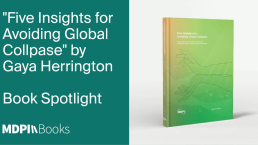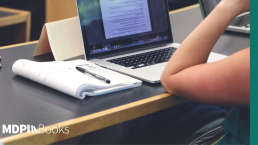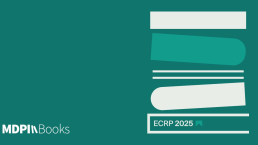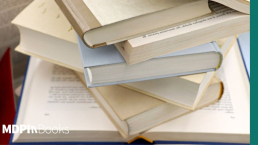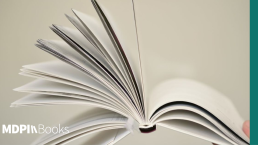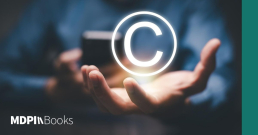
Copyright in Open Access Book Publishing: World Book and Copyright Day 2025
As we celebrate World Book and Copyright Day 2025, we are invited to reflect on the powerful role of books in preserving and sharing human knowledge and the legal and ethical frameworks that make these books possible. Copyright, once seen primarily as a tool for controlling reproduction and distribution, is evolving rapidly in the age of open access publishing, particularly in the academic world.
At MDPI Books, where we champion open access to academic knowledge, copyright is not an obstacle but an enabler. It protects authors’ rights while promoting the dissemination of their work globally and freely. And for this reason, it has an important role to play in the context of open access book publishing.
The changing landscape of copyright and books
Traditional publishing models have long relied on restrictive copyright practices, often assigning exclusive rights to publishers. Under these models, access to books—especially academic titles—has been limited by paywalls, institutional subscriptions, and licensing restrictions. This has created significant barriers, particularly for researchers in low-income countries, independent scholars, and the general public.
Open access models challenge this paradigm. By making scholarly content freely available online, open access book publishing democratizes knowledge.
Empowerment through open access licensing
The democratization of knowledge isn’t the only priority. Empowerment of authors is important too.
At the heart of open access book publishing is the principle of author-retained copyright. Rather than transferring rights to publishers, authors maintain ownership and choose how their work can be used. This is most commonly facilitated through Creative Commons licenses, which provide clear, standardized options for granting permission.
At MDPI Books, authors typically publish under a CC BY license (Creative Commons Attribution). This license allows others to distribute, remix, adapt, and build upon the work so long as proper credit is given to the original author. The agreement ensures maximum reach while maintaining academic integrity and acknowledgment.
This form of copyright is transformative. It fosters reuse, translation, and interdisciplinary collaboration. It also enables educational institutions and libraries to incorporate open access materials into academic resources and repositories without navigating complex permissions.
Ensuring attribution, integrity, and academic recognition with copyright
As we can see, copyright in open access book publishing explicitly requires credit to be attributed to the author. In the academic context, this ensures proper referencing and scholarly ethics, maintaining—and even benefiting—the author’s citations and academic reputation.
Platforms like MDPI Books maintain rigorous peer review, editorial standards, and metadata tracking, ensuring that works are properly attributed and remain part of the academic record. Digital Object Identifiers (DOIs) and ORCID integration further enhance discoverability and author recognition.
Legal flexibility across the globe
One of the challenges in open access book publishing is navigating copyright laws across different countries. The global nature of academic work means that books may be read, downloaded, or cited by people in many different legal contexts. Creative Commons licenses are designed to be globally valid and legally robust, offering a solution that works across borders.
MDPI Books’ adherence to international standards ensures that authors’ rights are protected no matter where their work is accessed. This kind of accessibility is crucial for creating a truly global scholarly commons.
The publisher’s role in ethical open access
While open access returns copyright to the author, publishers still play a crucial role. At MDPI Books, we provide the infrastructure—editorial expertise, technological platforms, marketing, and archiving—that enables authors to reach a global audience. We also support compliance with funder mandates, institutional policies, and open science initiatives.
Importantly, ethical open access publishing also means transparency in business models. MDPI’s use of book processing charges (BPCs) is clearly communicated, with options for institutional support, waivers, and discounts. This helps ensure that the move toward openness does not exclude under-resourced scholars.
A future built on shared knowledge
It’s clear that copyright in open access book publishing is not about restriction—it’s about maintaining openness while preserving author empowerment and democratic access to knowledge. It secures the rights of authors while expanding the reach of their ideas and encouraging innovation and collaboration.
At MDPI Books, we believe that the future of academic publishing lies in openness, transparency, and global participation. By reimagining copyright not as a gatekeeper but as a gateway, we can build a more inclusive and dynamic scholarly ecosystem. And within this ecosystem, knowledge will remain free to all.
Check out our FAQ for more information on copyright and plagiarism.

